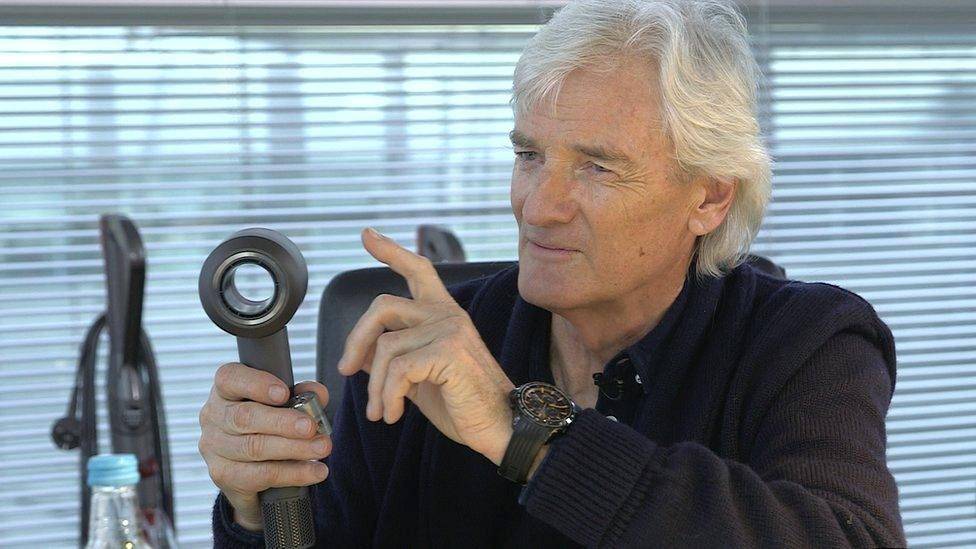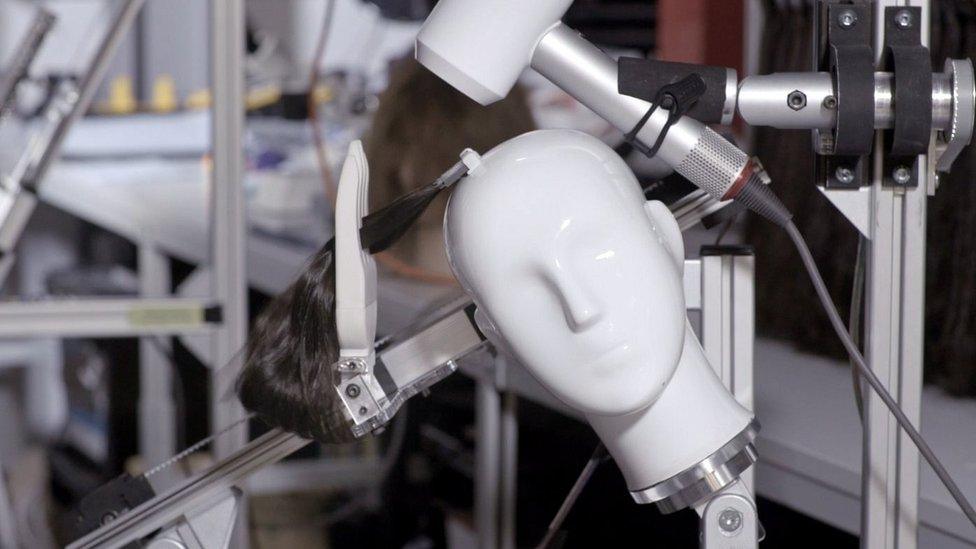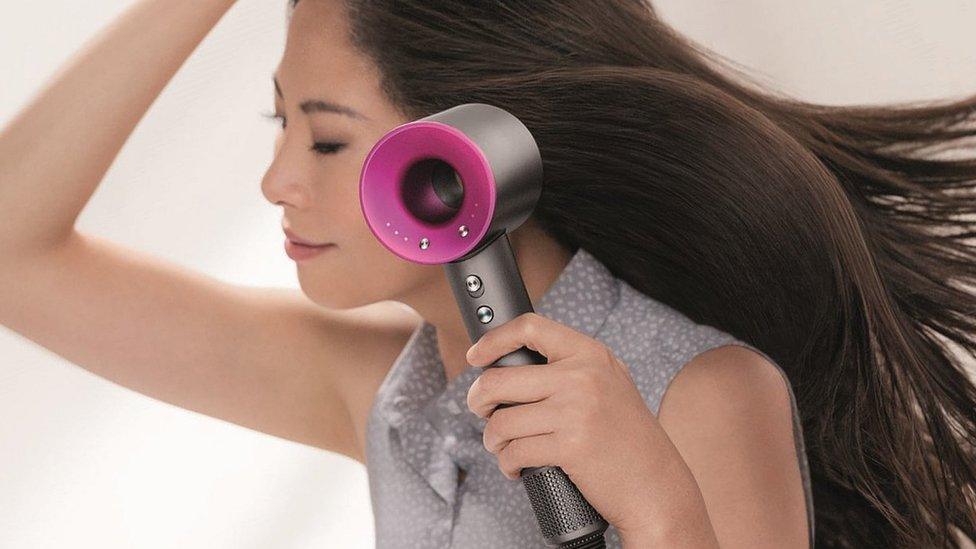Dyson unveils 'quieter' £299 hairdryer
- Published
- comments
WATCH: Dyson announces 'quieter' £299 hairdryer
Dyson has revealed its first personal care product - a hairdryer that it says is quieter and less damaging to hair than a conventional machine.
It is the first hairdryer powered by a miniaturised air pump in the handle, using the same airflow principles as Dyson's desk fan products.
The company said it had invested £50m in the development of the device.
However, the £299 price tag makes it at least twice as expensive as salon-grade dryers made by rival manufacturers.
"People do spend a lot of money to take care of their hair," said Thidathip Tawichai, analyst at Euromonitor International.
"People in developed markets usually look after their personal care more and buy more expensive products.
"But £300 is very expensive and a lot to invest in a hairdryer. People like to follow fashions and spend a little money trying different things," she told the BBC.

Sir James Dyson's company sold £1.7bn worth of products in 2015.
Dyson is best known for its bagless vacuum cleaners and high-speed hand dryers, although it says it has a further 40 products in development.
The company's founder Sir James Dyson said developing a hairdryer was an "obvious" choice.
"There just happens to be a huge field in airflow," he told the BBC.
"We make very high-speed motors... so it's rather obvious that we would carry on and use that in everything involved in airflow."

Dyson has constructed a hair research laboratory in Malmesbury, UK
The company said it had spent £50m investigating the "limitations" of conventional hairdryers. The biggest problem, according to Sir James, was that styling attachments and the dryer's proximity to hair slowed airflow and led to hair being overheated.
"If you overheat the hair, you get water bubbles in the cortex exploding and blasting holes in the fibres, which gives you a dull look and damaged hair," he told the BBC.
Defending the price of the hairdryer, which will cost more than some of the firm's latest vacuum cleaners, Sir James said: "We all spend 20-30 minutes every day doing our hair, so you use it an awful lot.
"Not damaging your hair, that's worth a lot of money."

Dyson engineers produced hundreds of prototypes
Personal care analyst Roshida Khanom of Mintel said women in particular had started looking for products that were kinder to their hair.
"We found a high proportion of women are limiting their use of heat appliances and 20% had bought appliances that claim to be less damaging, so there's definitely a market for products that don't damage hair," she told the BBC.
While Dyson's hairdryer will be marketed at consumers as well as haircare professionals, Sir James said it was more important to satisfy customers than to appeal to a wide audience.

Dyson's hairdryer will be marketed at consumers
"It's not so much how many you sell that's important, it's whether people who buy it like it," he told the BBC.
"I don't mind if I only sell 100 a year, as long as those 100 people think it's really good. I wouldn't make much money but that's not always the point. That's not what drives us, that's not what makes it exciting."
The new hairdryer will first go on sale in Japan, where Dyson says 96% of people own a hairdryer.